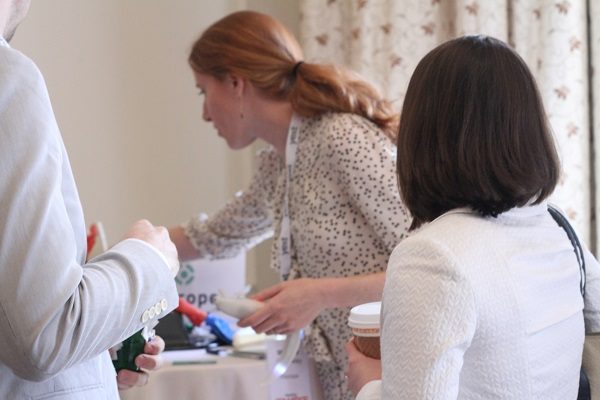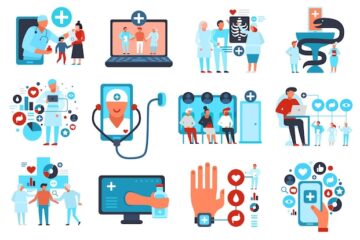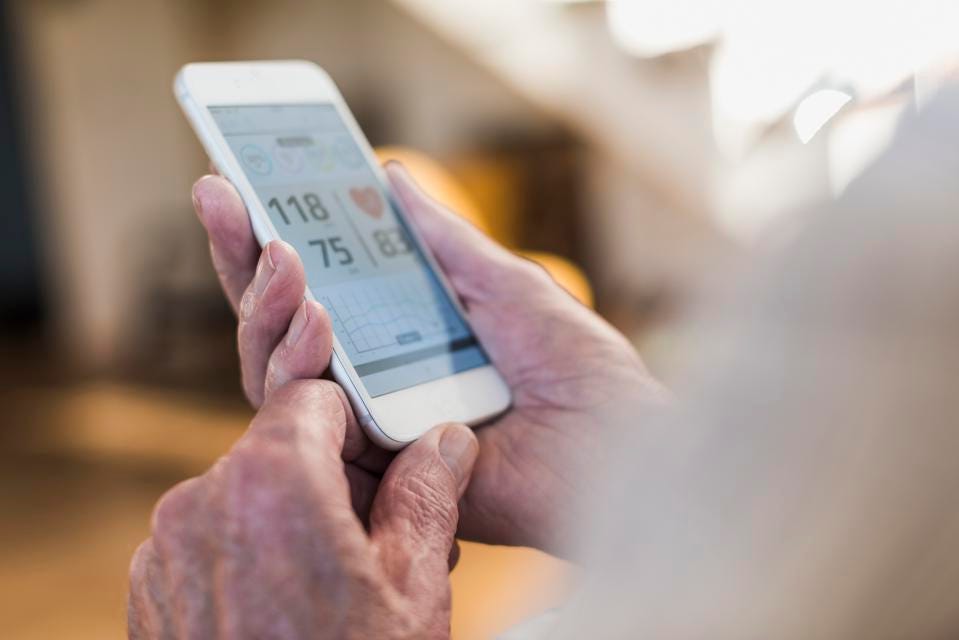
There was an abundance of healthcare startups at the MedCity CONVERGE conference this week seeking to solve a broad spectrum of pain points in healthcare from clinical decision support through Grand Round Table to providing a safer and faster way to do a laryngoscopy for patients like Inscope Medical. Some of the startups are recent grads of healthcare accelerators including Dreamit Ventures, TechStars, the Digital Health Accelerator at the University City Science Center. Others took a different path. Here’s a look at the first set of companies I spoke with.
Kermit developed an analytics engine to help hospitals to rein in costs associated with medical device implants. It was developed to bring more transparency so that surgeons can know what implantable medical devices cost and those who need to know understand what the hospital is being charged. It was developed with an eye to supporting the CJR bundled payments program for hip and knee replacement.
“Surgeons need real data to participate in spend management,” said CEO Richard Palarea. “CJR is a big focus of what we are trying to do. Today, the focus is on post-acute care. About 30 percent of the spend can be squeezed out.”
Among the services Kermit provides are audit and compliance for billings and classifying implants. The idea, said Palarea, is to change the paradigm so that hospitals and physician practices can renegotiate contracts with vendors from a position of strength.
It currently works with Johns Hopkins and the University of Maryland, but University of Massachusetts Medical Center is also piloting its analytical software. It’s in the midst of raising a $2.5 million Seed round that it hopes to close in the Fall.
Grand Round Table, a company that’s currently a partner with athenahealth’s More Disruption Please program, is in the business of developing clinical decision support software. The latest addition to the startup’s platform provides a daily update for primary care physicians and other members of the care team so they can do a better job of prepping for patient appointments. Called Clinical Assistant, the app summarizes scheduled patient appointments for a given day and draws attention to changes made in patients’ charts since their last visit. It is aimed at primary care physicians and Patient Centered Medical Homes so they can address potential care gaps and improve communication with patients and care teams. CEO and Cofounder Eric King said the app is the product of feedback from physicians on what they disliked about electronic health records, such as alerts. The Daily Digest is available in athenahealth’s app store.
Inscope Medical Solutions, a graduate of the TechStars accelerator with Cedars Sinai Medical Center in Los Angeles, built a laryngoscope with fully integrated suction. The purpose of the device is to clear a patient’s airwaves of vomit and secretions that can obstruct the physician and nurses’ view when they do a laryngoscopy for the patient. The design of the device frees the user to use their other hand to insert the endotracheal tube. CEO Maggie Galloway said. “Fluids are always re-accumulating. Our device has a wireless camera…to make intubation safer for patients and easier for physicians.” She added that the Louisville company’s future vision is to develop other connected imaging devices.
So far it has signed on 15 hospitals and EMS teams to assess the device. It used 3D printing to develop the prototype on display at CONVERGE.
 The team behind Sherbit.io wants to contextualize data so users can make connections between their activities, their behavior and their health. It aggregates data from apps such as Twitter, Reddit, Facebook, activity and vitals monitors, and offers insights such as how your exercise levels affect your commute. It is up to users to focus on which apps they want to use and what kind of insights they want to glean from the information such as stress levels, assessing a workout routine, etc. “By creating these tailored experiences, we allow patients to be more in control of their lives,” said Sameer Sood, Chief Health Innovation Officer. “Our goal is to give a lifestyle context to the user’s highs and lows.”
The team behind Sherbit.io wants to contextualize data so users can make connections between their activities, their behavior and their health. It aggregates data from apps such as Twitter, Reddit, Facebook, activity and vitals monitors, and offers insights such as how your exercise levels affect your commute. It is up to users to focus on which apps they want to use and what kind of insights they want to glean from the information such as stress levels, assessing a workout routine, etc. “By creating these tailored experiences, we allow patients to be more in control of their lives,” said Sameer Sood, Chief Health Innovation Officer. “Our goal is to give a lifestyle context to the user’s highs and lows.”
InSpark Technologies launched an app called Vigilant for Type 1 diabetes patients to search for patterns in connected glucometer data. With that information, it can give users feedback on how well they are managing their condition and what they can do to improve. Founder Erik Otto said it was planning to transition to a business to business to consumer model because it lacked the firepower for its app to succeed in a direct to consumer market. But the company’s work has helped it accrue data insights that will be useful in making its case to payers. A study of the Vigilant app presented at the American Diabetes Association conference earlier this year evaluated the app in an office setting for 15 diabetes clinicians and 46 diabetes patients who use multiple daily injections of insulin or insulin pump therapy and then it monitored 46 patients who used the app at home for 30 days. There was a 51 percent reduction in the proportion of blood glucose levels below 40 mg. There was also a 5.3 percent decrease in average glucose levels.
[Source:- Medcity News]




